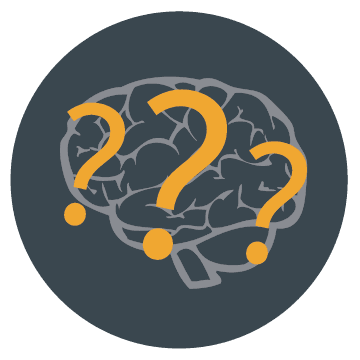
Got Questions?
If you’ve been noticing changes in memory, for yourself or a loved one, making that first doctor’s appointment is a daunting step. Being prepared can help ease the stress and make the most of your time! Here’s what to bring, what to expect, and some questions to ask at your visit.
What to Bring
Make the most of your appointment time by preparing in advance. Ideally, you should bring:
- List of any changes in your health, including your mood, memory and behaviors. Make a note of any changes you’ve noticed since your last appointment. Be as specific as possible.
- List of past and current medical concerns. Tell your doctor if other family members had illnesses that caused memory problems.
- Current prescriptions and over-the-counter medications taken regularly.
- Vitamins or supplements you’ve added to your medication regimen.
Be prepared to answer the doctor’s questions honestly, and to the best of your ability. Consider bringing a loved one or trusted friend if they can provide helpful input.
What Comes Next: Tests
If your doctor wants to follow-up on your concerns, they may consider the following testing options:
- Cognitive Assessments: People with symptoms of dementia are given verbal and/or written tests to check their mental abilities, such as memory or thinking. These tests are known as cognitive assessments, and may be done initially by a GP.
- Scans: They can also order a CT, MRI, or PET scan to diagnosis and rule out other medical issues, such as a stroke, brain tumor, etc.
- Blood work: Your GP will arrange for blood tests to help exclude other causes of symptoms that can be confused with dementia. These tests may check:
- liver function
- kidney function
- thyroid function
- hemoglobin A1c (to check for diabetes)
- vitamin b12 and folate levels
Questions to Ask
If you receive a diagnosis, you’ll probably have a million questions. Here are a few you might want to ask, either now or at a future appointment.
What type of dementia do I have?
- What symptoms can I expect?
- What will the pace of decline be?
What caused my dementia?
- What is the likely course of decline?
- How long do I have?
- What can I do to slow the decline?
- What medicines are effective and what results can I expect from them?
- What lifestyle changes will be helpful?
- What are the chances that my children will get dementia? Is there anything they can do to prevent getting dementia?
- Where can I go to learn more about dementia?
What help is available to guide me?
- If I have a problem that might be related to my dementia, whom should I call?
- What plans should I make now to prepare for a time when I can be less engaged in making decisions?
- How should I select a family or friend caregiver?
- What are reasonable goals for me for me now and in the future?
- How can I preserve what matters to me?
I’m afraid of becoming dependent and a burden. Will that happen?
- Are there programs or services I should look into?
- When will I need to get help in the home or go to an adult day center or facility?
Should I tell people about my diagnosis?
- Should I continue to interact with people even though they might notice that something is different?
- Are there resources to share with family or friends?
Want a printout of these questions? Download the flyer below!
Blog
"I like that IMCC focuses on dementia-related problems and provides a focal point for families to network and socially interact in coping with dementia. It provides a community that helps us in our struggle."







